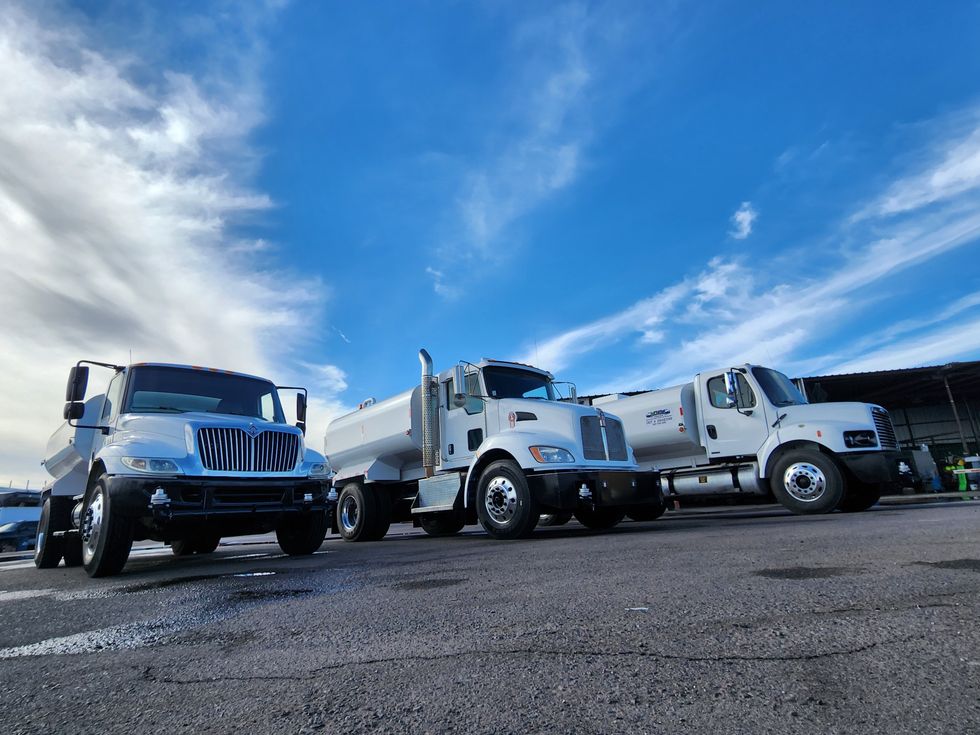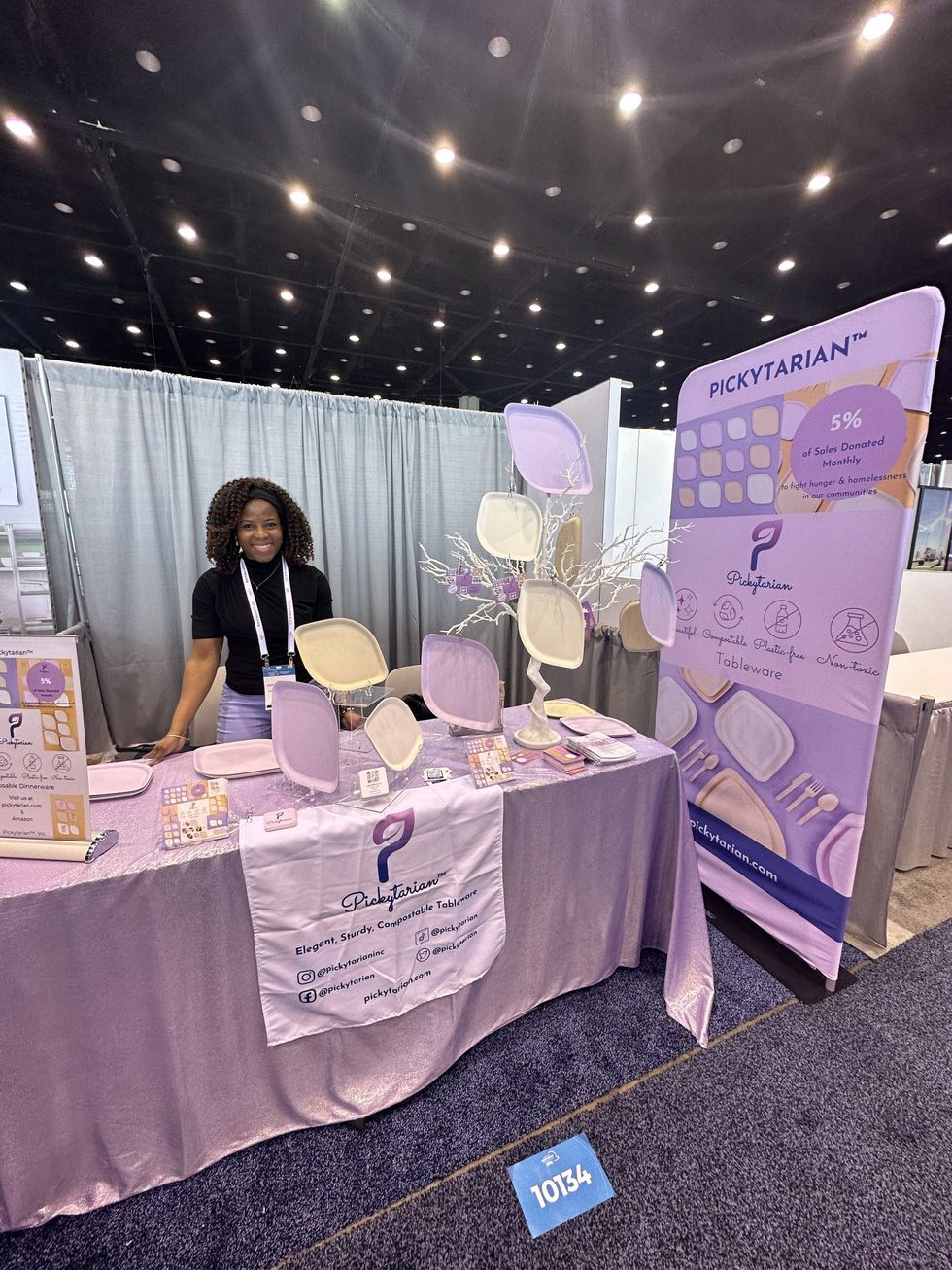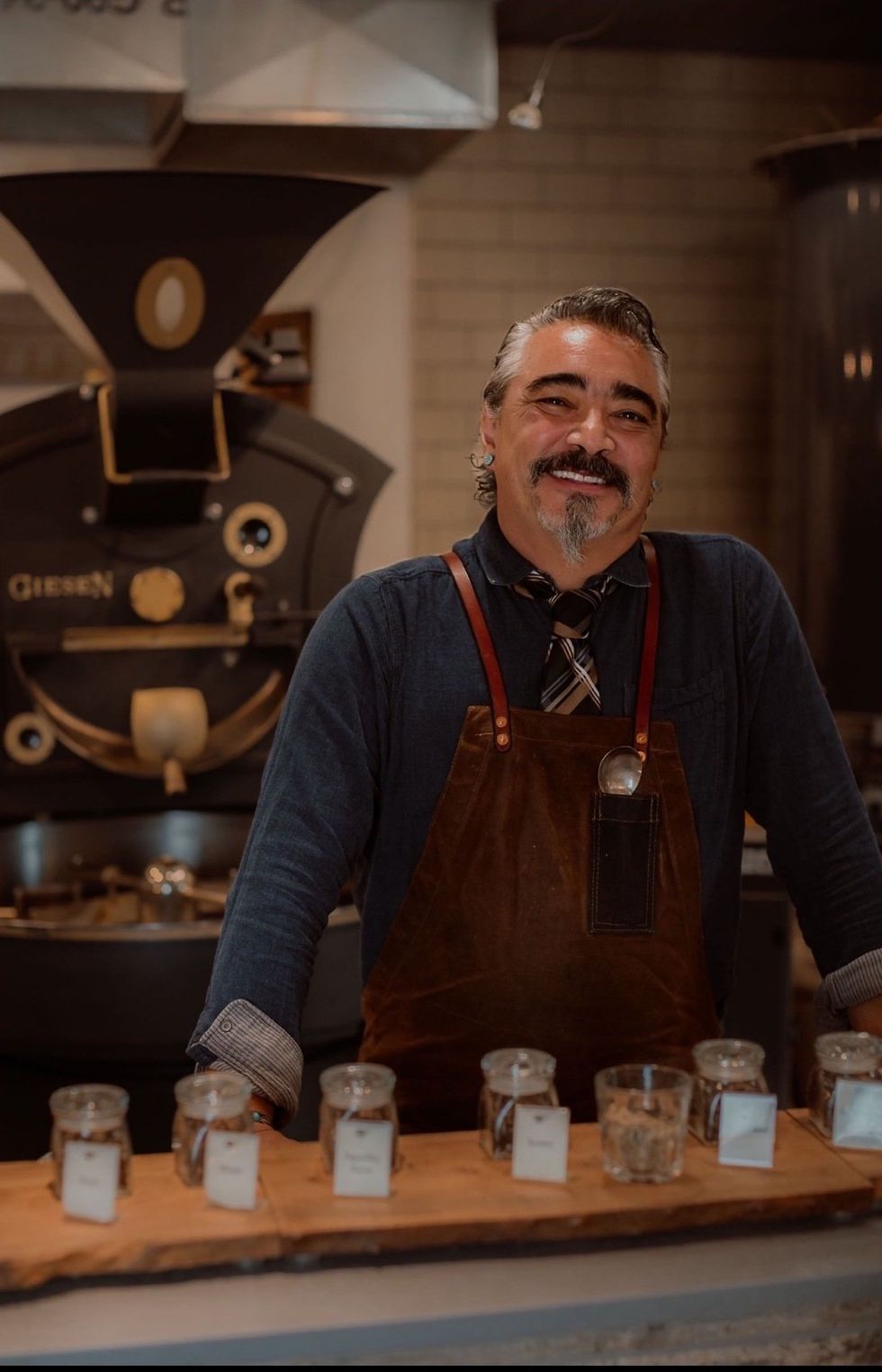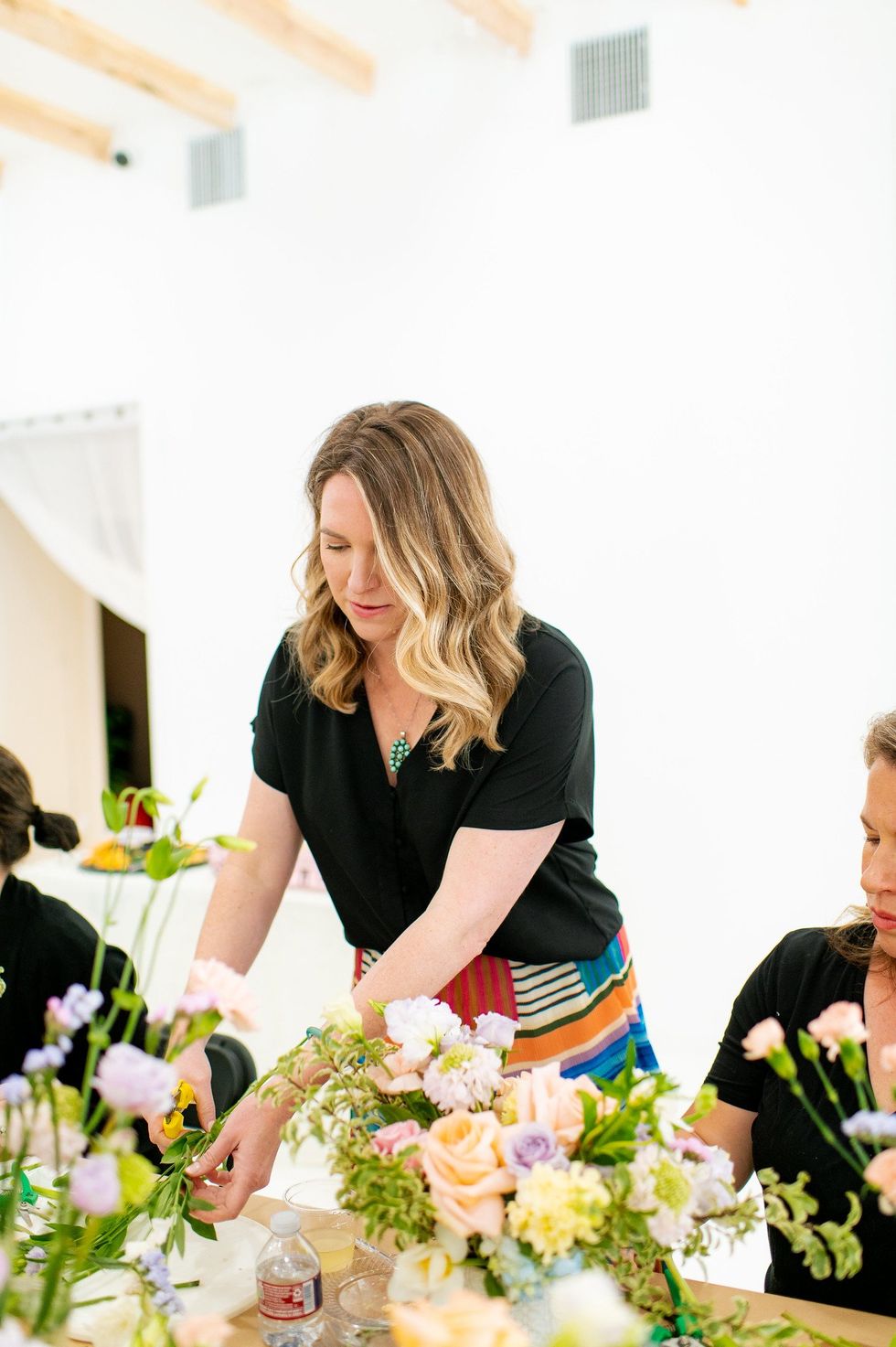
This summer, Arizona small business owner Sara VanFleet twice had to write unexpected checks for thousands of dollars, thanks to tariffs imposed by President Donald Trump.
In June, Trump raised tariffs on imported steel and aluminum from 25 percent to 50 percent.
VanFleet, who owns DB Trucks, a company in Glendale, Ariz., that builds and customizes water trucks, got an early morning call from her customs broker.
VanFleet needed to wire more money in order for a steel water tank her company manufactured in Mexico to be allowed into the country.
“How do you account for that as a small business when you have to cough up another 25 grand to get your tanks across?” VanFleet said.
“There's no crossing. There's no anything until you wire the money to the customs brokers to get these across. When you're crossing sizable products like tanks or something of size, it's a serious amount of money.”
In August, Trump levied an additional 50 percent tariff on imports with steel derivatives.
Compounding tariffs shot the tax percentage to 97.5 percent for a shipment already on a boat from China to Los Angeles, VanFleet said.
Her client had already paid the invoice, which accounted for a 57.5 percent tariff.
“We're doing the best we can to sort of navigate it, but it's very nerve-racking, and it's very difficult to navigate it when you're not a deep-pocket big company,” VanFleet said.
She employs seven people.
‘Can't buy in the U.S.’
Trump loves tariffs — he said it’s his favorite word. Since taking office a second time, he has announced a changing lineup of increased taxes on imported goods as a proposed way to bring manufacturing back to the U.S.
But the reality is that even if companies want to use American-made materials, some are not produced here.
That means small businesses suffer as they’re forced to pay higher prices, nearly a half-dozen owners told Raw Story.
“I can't buy in the U.S. if they don't sell it in the U.S.,” VanFleet said.
“There's really nowhere that actually manufactures a lot of these parts anymore. Maybe someday they'll come back, but a lot of the parts that I'm buying — spray heads and stuff like that — anybody that I can buy them from is already buying them from China.”
 Water trucks from DB Trucks in Glendale, Ariz. (Photo provided by Sara VanFleet)
Water trucks from DB Trucks in Glendale, Ariz. (Photo provided by Sara VanFleet)
Laide Olambiwonnu owns Pickytarian, an LA-based e-commerce company that makes eco-friendly dinnerware.
“When I was launching this business, I reached out to a bunch of factories in the U.S. to try to see if we can get this to be made in America, and everyone shut me down,” said Olambiwonnu, who buys bamboo and sugarcane pulp in Asia.
“People were just kind of like, ‘We don't do that. That's just not something we do.’ Nobody was really willing to entertain the concept I had.”
The rapidly changing terms of Trump’s tariffs have hurt small businesses forced to raise prices, take hits to their margins and delay expansions.
“We're four years old and fighting to make it, and it's just too much, too fast, too inconsistent,” VanFleet said.
“It's hard to eat margins and eat some of these tariffs when you just don't see them coming.”
Eroding margins
VanFleet says she now relies more on corporate clients versus individuals who needed water trucks for construction or farms but are now priced out.
Standard trucks that used to cost $40,000 now cost $70,000 to $80,000, and larger used trucks that cost $50,000 to $60,000 when VanFleet started her business four years ago now sell for nearly $100,000, she said.
“It's been a tough year, trying to figure out where to put the prices, what people can afford,” VanFleet said.
Olambiwonnu said costs increased 30 percent this year, but since she only started her business three years ago and is just starting to see growing sales, she isn’t comfortable raising prices.
 Laide Olambiwonnu, owner of Pickytarian (provided photo)
Laide Olambiwonnu, owner of Pickytarian (provided photo)
“I'm just absorbing the cost, and it's just eroding I think any margin that we have, but we're just trying to see what we can do to survive right now,” Olambiwonnu said.
That’s led her to not buy any “crazy amount of inventory” and leave some items out of stock, she said. She has also cut down from five contractors to two.
‘We’re all struggling’
Paul Gallegos, owner of Cutbow Coffee in Albuquerque, N.M., said tariffs as high as 50 percent on places like Brazil have required him to raise prices by 25 percent “across the board.”
That’s led to a 10 to 15 percent loss of customers, he said.
“It’s quite challenging,” he said. “There's no coffee produced domestically, so every bean that's roasted in America is imported.”
Gallegos said his beans come from Latin America, the South Pacific, Indonesia and East Africa, which all have faced increased tariffs.
“I would just hope that our government would consider the ramifications of their decisions and how it affects working class people and Americans in general,” Gallegos said.
 Paul Gallegos, owner of Cutbow Coffee (provided photo)
Paul Gallegos, owner of Cutbow Coffee (provided photo)
“Every single one of us is affected by these all the way down to our children and elderly, and we're all struggling … it's just disheartening.”
Southern California-based Klatch Coffee has twice raised prices this year.
“Unfortunately, depending on what happens with the tariffs, we may have to do it again come the end of this year, first of next year, and that would be tariff-related again,” said Mike Perry, who owns 12 cafes.
Tariffs are costing customers $4 to $5 more per pound for coffee beans and 20 to 40 cents extra per drink, Perry said.
“We're paying more, and it's just not enough that anybody can absorb it,” Perry said. “They've got to increase that much just to break even.”
Despite the tariffs, Perry said Klatch Coffee was expanding to 10 more locations, through a partnership with supermarket chain Sprouts.
“You've got to be honest,” he said. “You're not going to beat the customer over the head, but if they ask about it … ‘I’ve seen your prices go up,’ we want to be able to address that and be honest with them on why, what’s going on.”
‘Weighing very heavy’
For the five-year anniversary of DB Trucks, VanFleet was hoping to expand and buy property. But, she said, “I just don't know if it's feasible right now.
“It's weighing very heavy on me, and I don't know what the good decision is because I've got a lot of people's livelihoods riding on my decisions of if we go out and spread our wings, are we going to make it next year?” VanFleet said.
“Do we sort of sit where we are and just hunker down and hope we survive and wait it out for another couple of years? I don't know.”
Amy McCord launched a DIY flower company, Flower Moxie, in 2014. Operating out of Oklahoma City, she’s delayed the launch of a new website, Petal Icon, since tariffs on supplies from China are “going to deeply impact” the business.
Petal Icon will provide supplies — flowers, buckets, vases — to build flower arrangements, McCord said.
But “the tariffs have really changed the game. It's, overall, just hurting everything.”
 Amy McCord, owner of Flower Moxie, creates a flower arrangement (Photo provided by Amy McCord)
Amy McCord, owner of Flower Moxie, creates a flower arrangement (Photo provided by Amy McCord)
McCord has raised prices 10 to 20 percent and changed how she sells, requiring more bulk purchases versus individual stems, she said.
“I'm trying to kind of figure out the economic benefit [of tariffs] when the country's already kind of struggling with the cost of everything increasing,” McCord said.
“When you initially hear about it, you're kind of told on a certain level that other countries are getting some kind of free ride, and ‘We're just making it fair,’ but actually experiencing it, small businesses, and then Americans, the cost is just passed off to them.”




